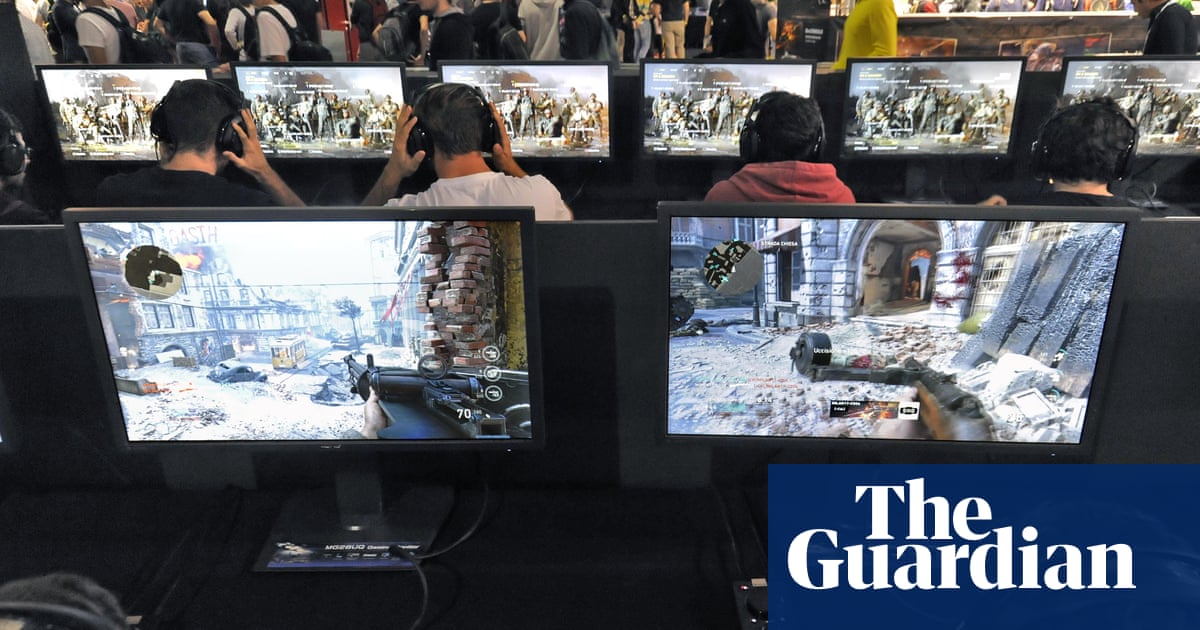
It was not only audiences that turned to video games during the pandemic. With theatres closed, and TV and film production on hiatus, British actors chose work they could do from isolation – and the booming gaming industry was ready to fill the gap.
“The minute the pandemic hit, it was just everyone asking me: ‘What mic should I get? How do you set up a home studio?’” says Cassie Layton, an actor and musician from south-west London. “I was lucky in that I had worked doing voice acting for a few years before the pandemic hit. But every single actor, I think, either had the thought or took the action to set up a home studio.”
Voiceover work has been a part of many actors’ repertoire for longer than just the pandemic. But in the last year, more than half of all British adults played a video game, according to Ofcom, spending a total of £7bn in the process.
The launch of new consoles from Microsoft and Sony has focused even more attention than usual to the blockbuster “AAA” end of the market, where lavishly animated and acted portrayals are the norm and production budgets can easily outstrip those of a Hollywood movie. All of which has increased the demand for voice actors, and provided a boon for workers whose other sources of income dried up.
Not that it was purely driven by cold economic reality. “Many more actors could be actually playing games themselves and consuming content and being like: ‘You know what, this is actually pretty awesome – I’d love to do this,’” says Sam Hughes, a British voice actor based in Finland. “And then some people, who always had an interest but were too busy doing other forms of acting, were like: ‘Oh, I can finally dive into voice acting properly now.’”
There are few statistics on the scale of the video game voice acting business. The ONS does not collect data on what actors do, and Equity, the actors’ union, has been trying for years to encourage more cooperation and communication between studios and the union – to mixed success.
“It’s partly because there isn’t a trade body that we can negotiate with,” says Shannon Sailing, industrial official for audio, new media and games, “but also because it’s a fresh area of work. We’re in talks with some of the major voice studios in the UK, to try and get a collective agreement.”
But the scale of what a game is can vary. At one end, massive blockbuster productions are effectively mini computer-generated movies – and, after a 2017 strike from Hollywood’s Sag-Aftra union, often come with similar levels of protection. For games such as 2020’s Last of Us Part II, actors perform in full motion-capture suits, a camera trained on their faces to capture their expressions for digitisation.
Layton’s first game role, as De Sardet, the protagonist of 2019 fantasy role-playing game Greedfall, was larger than most – but still just a voice performance. “They got me in to read for the audition, and I think I only read five lines – but that got me a video game role that was … I think we recorded over 100 hours of it. It was quite intense.
“We did it over two years, in blocks of a couple of weeks coming in and recording for maybe four hours a day. Then there’d be a three-month gap, and then you’d have another session. If you’re lucky – and I was – they’ve recorded everyone else’s lines before, so you can act off other people.”
For Hughes, a bulky recent project stands out as the exact opposite experience. Working on what he simply calls “the spreadsheet game”, he was emailed an Excel spreadsheet with 600 lines of dialogue every six months or so. “That was an arduous one,” he says with a laugh. “They don’t give you much direction, they’re lower paid, and it was kind of tedious because I was basically doing the same character twice – once in an American accent, and once as English.”
Sometimes, “tedious” would be a blessing. Layton recalls one job performing as a zombie. “They paid me for an hour. But an hour of screaming your head off is like an eternity in hell on earth. It’s so painful, and also, as an actor, your voice is your instrument; it’s part of your livelihood. I was a bit of a novice when I agreed to do it: I saw the price for an hours’ work and thought: ‘I can do this, this is fine.’ But you can get permanent vocal damage, or something that takes a long time to recover.”
It’s that risk of damage that Equity is trying to protect against by pushing for a standard union contract. Other pitfalls can also take actors by surprise, Sailing says. “There can be an issue that they’re not told up front what it is that they’re going to be voicing. People could be asked to do sex scenes, say racial slurs and so on, which can put them in a very uncomfortable position.”












